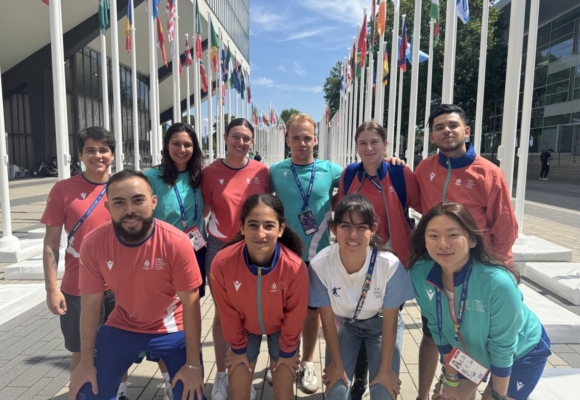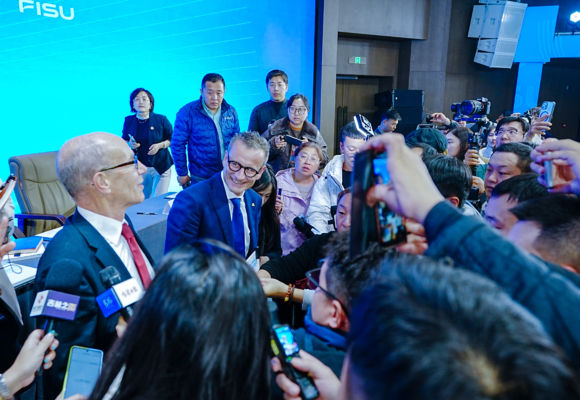Take a trip back through 60 years of Universiade history. The 28th stop on the FISU history tour takes us back to the Bulgarian capital again for the Sofia 1987 Winter Universiade.
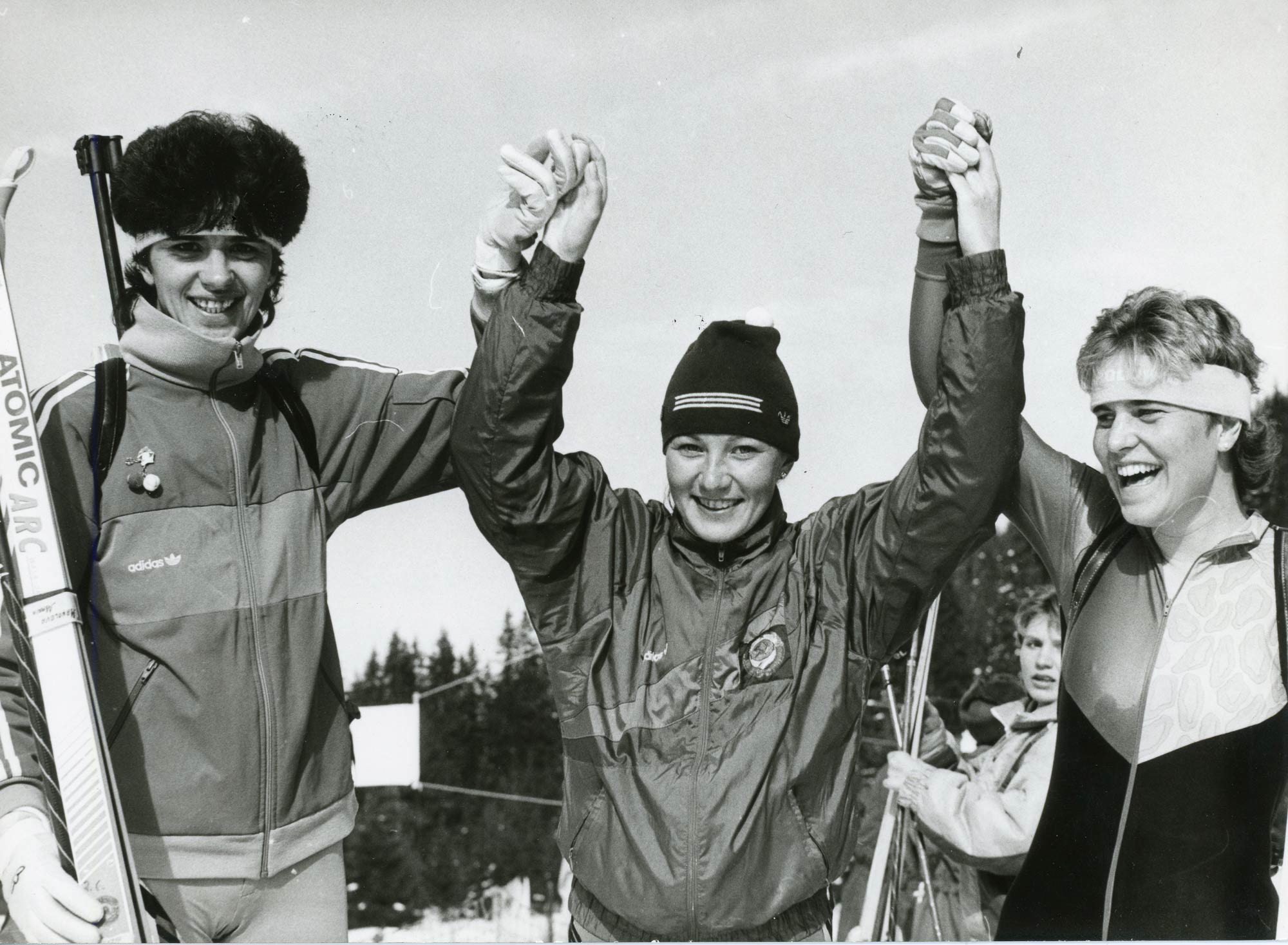
FISU turned to a familiar partner in Sofia to organise the 1989 Winter Universiade, tasking the Bulgarian capital to host the Universiade for a fourth time – the most by any city in the history of the Games.
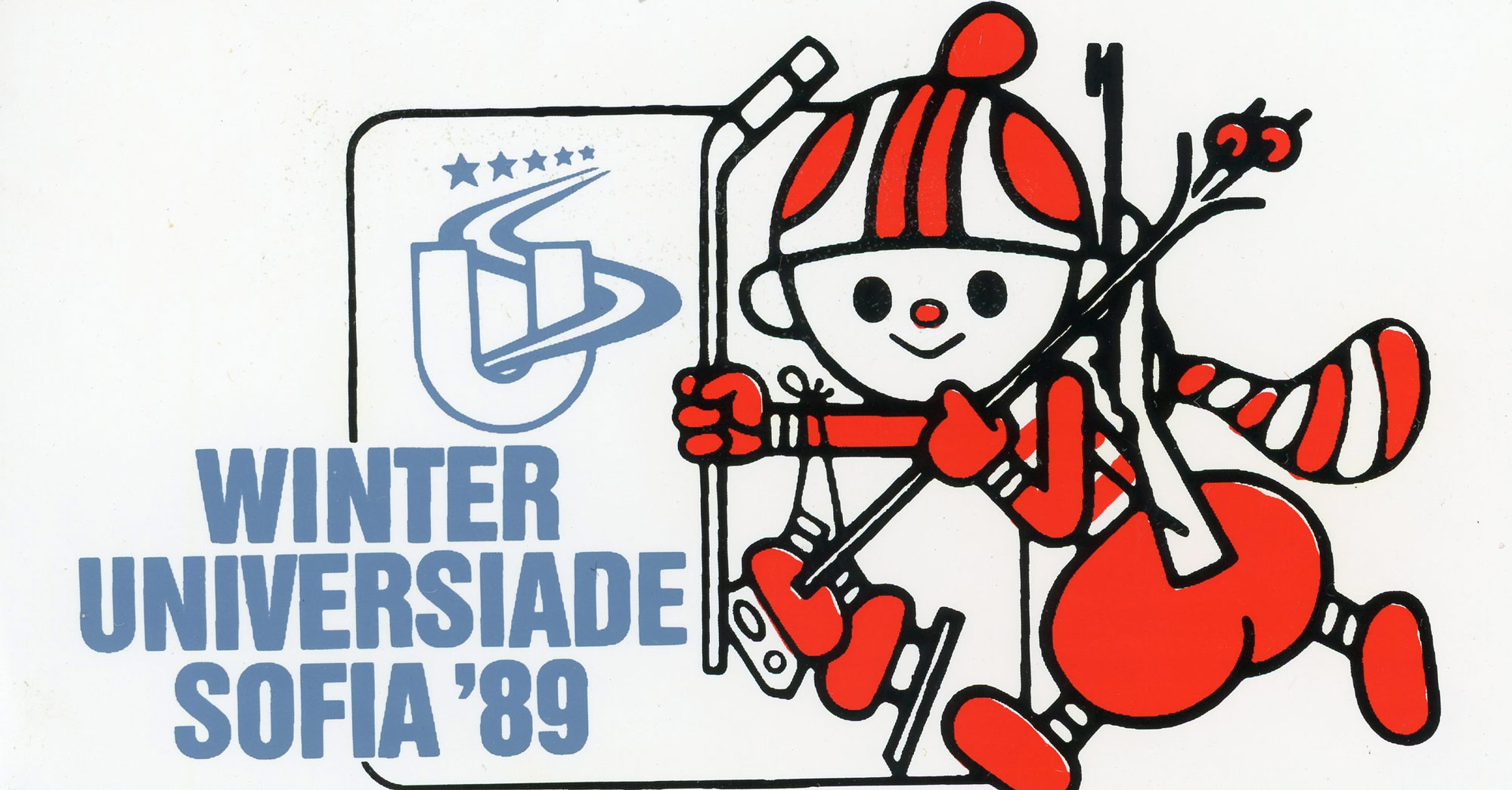 Sofia hosted the Summer Universiade twice, in 1961 and 1977, before taking on its first edition holding the winter edition of the FISU World University Games in 1983, underlining the importance of university sport to Bulgarian society, which has long emphasized physical education for its young people. It is Bulgaria’s belief that the youth can learn valuable lessons in life through competition on the playing field.
Sofia hosted the Summer Universiade twice, in 1961 and 1977, before taking on its first edition holding the winter edition of the FISU World University Games in 1983, underlining the importance of university sport to Bulgarian society, which has long emphasized physical education for its young people. It is Bulgaria’s belief that the youth can learn valuable lessons in life through competition on the playing field.
The 14th Winter Universiade in Sofia inherited the slopes for Alpine skiing from the previous Games held there six years earlier, but added a new starting area, skating rink and apartments to the Athletes’ Village despite being on a relatively tight budget and still reeling from the effects of a lost bid for the 1994 Olympic Games that went to Lillehammer, Norway. After holding three Universiades and with another on its way in 1989, Sofia was desperate to win the hosting rights for the 1994 Winter Olympics but came out on the losing end of a four-way race that also included Anchorage, United States, and Östersund, Sweden.
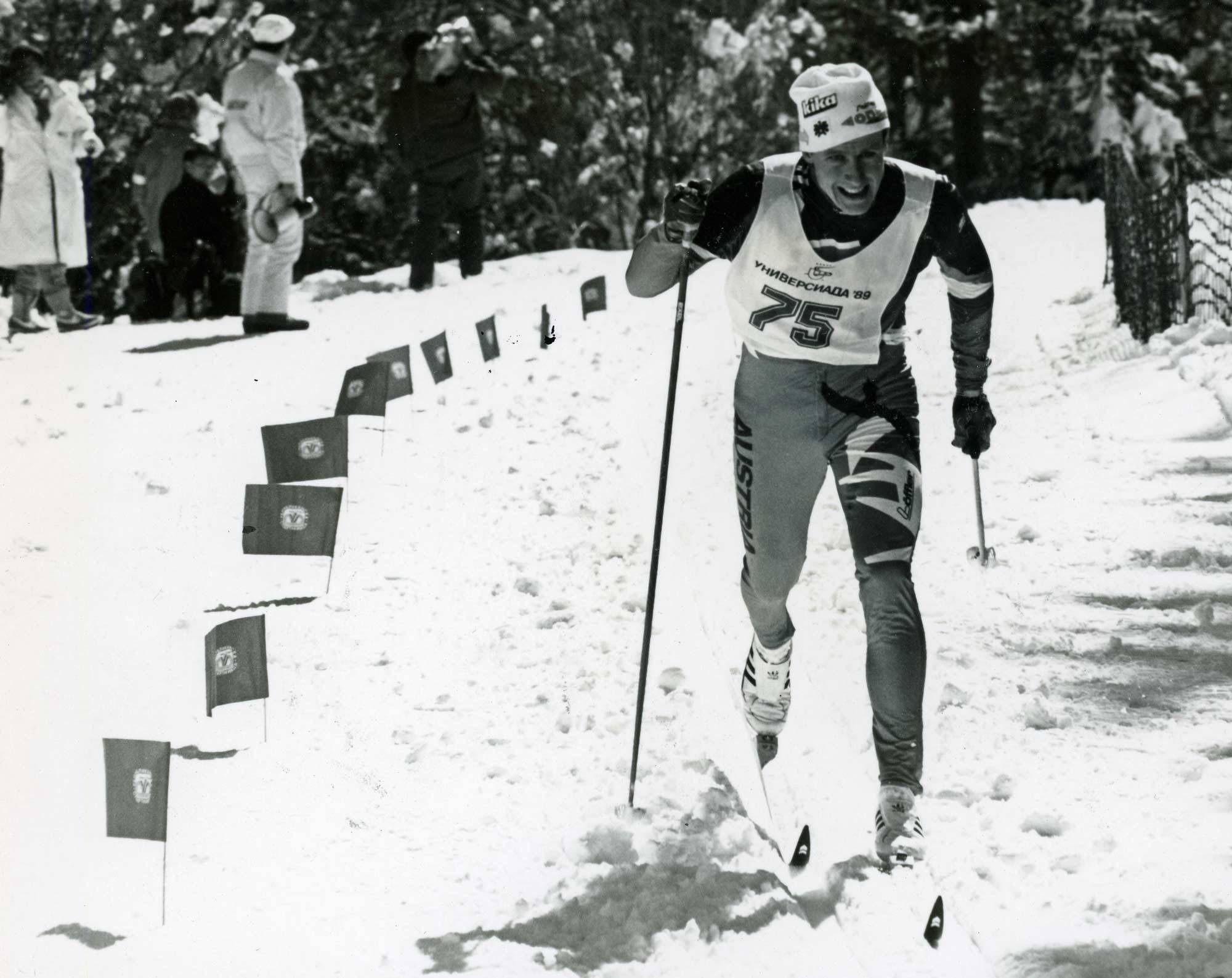 An Austrian cross country ski competitor attacking the soft, slushy snow conditions in the individual start classic competition. Austria left Sofia with four Universiade medals — one gold, two silver, and a bronze.
An Austrian cross country ski competitor attacking the soft, slushy snow conditions in the individual start classic competition. Austria left Sofia with four Universiade medals — one gold, two silver, and a bronze.
Roger Roth, chair of FISU’s International Technical Committee, remembered the sullen mood in Sofia at the time.
“The city was bidding for the Olympic Games in 1994, but the candidature failed before the Universiade and it was clear the National Olympic Committee no longer had much interest in this event,” Roth said. “Only Akademik (the national student sports body) was willing to take on the responsibility. With modest amounts of money, it was hard and everyone could see it. The Games were well organised but not at a top level, as was usually the case for events held in Eastern European countries. It was still the era of the simple Universiade.”
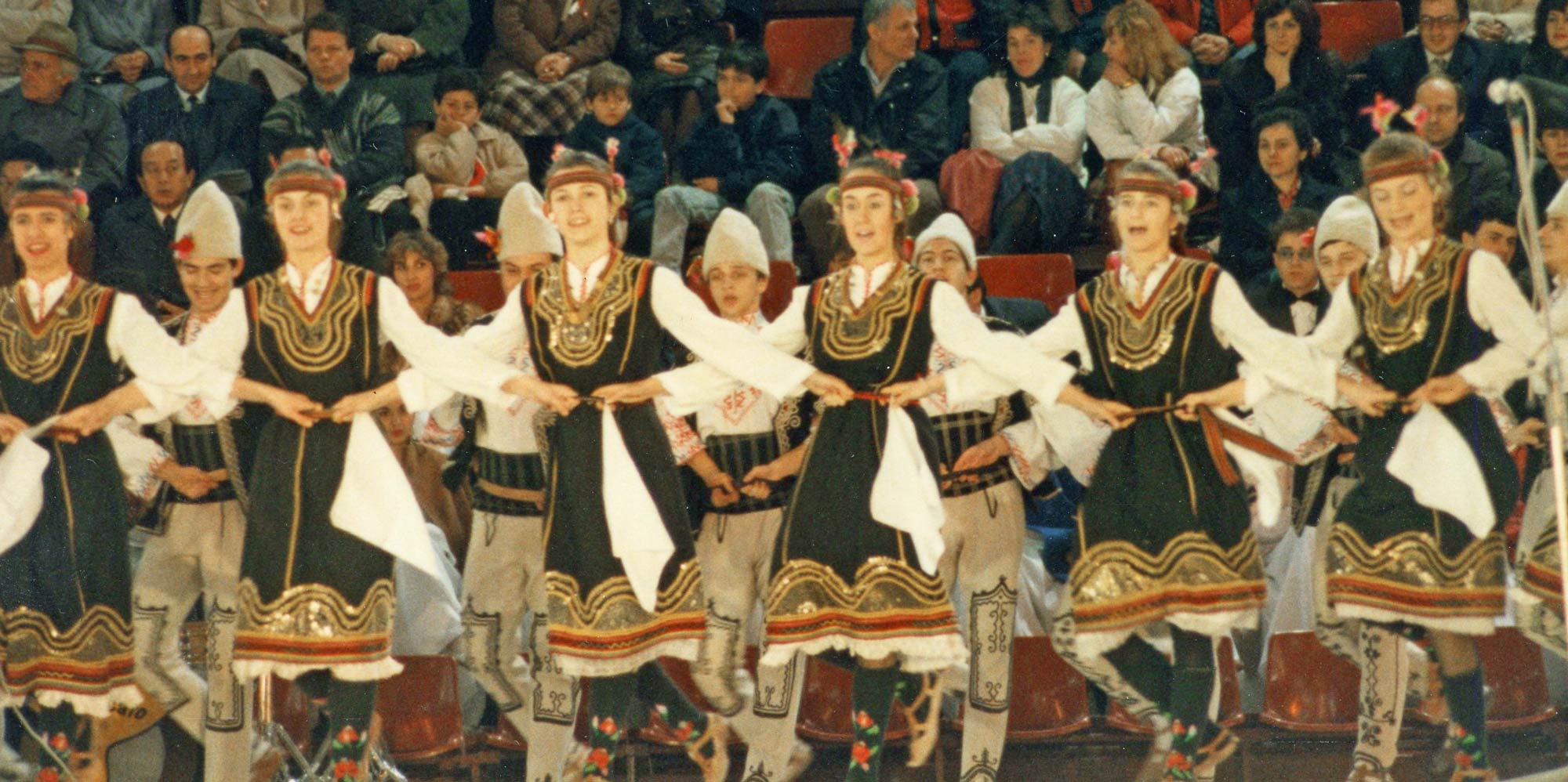 The Bulgarian hosts put their country’s history on display during the opening and closing ceremonies, and the 1989 Winter Universiade was no exception
The Bulgarian hosts put their country’s history on display during the opening and closing ceremonies, and the 1989 Winter Universiade was no exception
Yet by most measures, the Sofia 1989 Winter Universiade was still regarded as not only a success but also is credited for raising the bar for university sport, drawing 681 athletes from 32 nations (including debutants Greece, the Netherlands and Turkey) – both Universiade records at the time. The numbers were all the more impressive considering a scheduling overlap with the Alpine skiing World Cup and European Cup held in Japan and Czechoslovakia, respectively.
After relinquishing its hold at the top of the medals table to Czechoslovakia two years earlier in Štrbské Pleso, the Soviet Union bounced back in Sofia, doubling the medal total of runner-up Czechoslovakia 30-15. China finished third with 13 medals.
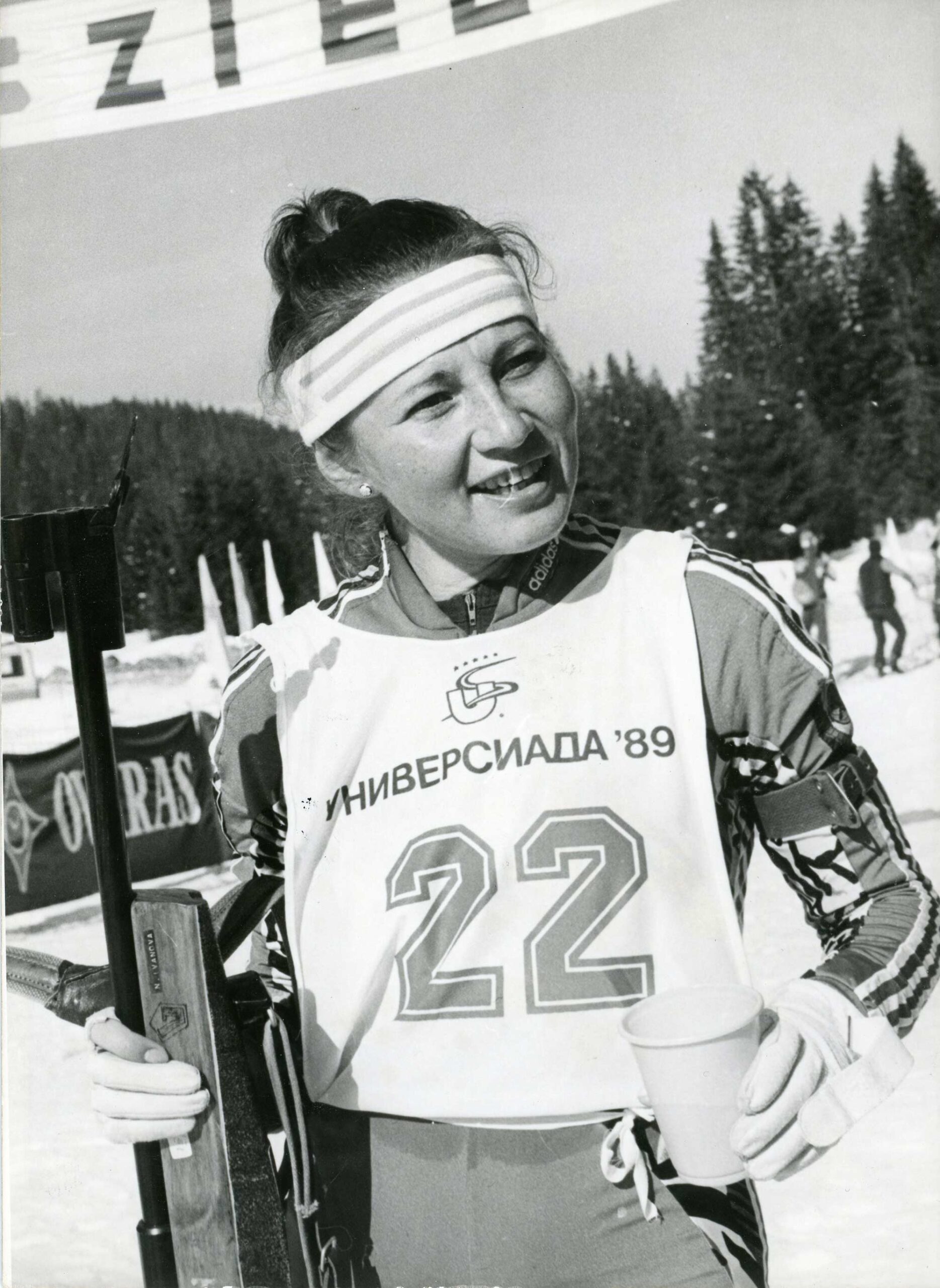 Since being added to the Winter Universiade programme in 1983 when Sofia first hosted the event, biathlon has gone on to be an integral event of the competition that draws impressive participant numbers and performances
Since being added to the Winter Universiade programme in 1983 when Sofia first hosted the event, biathlon has gone on to be an integral event of the competition that draws impressive participant numbers and performances
